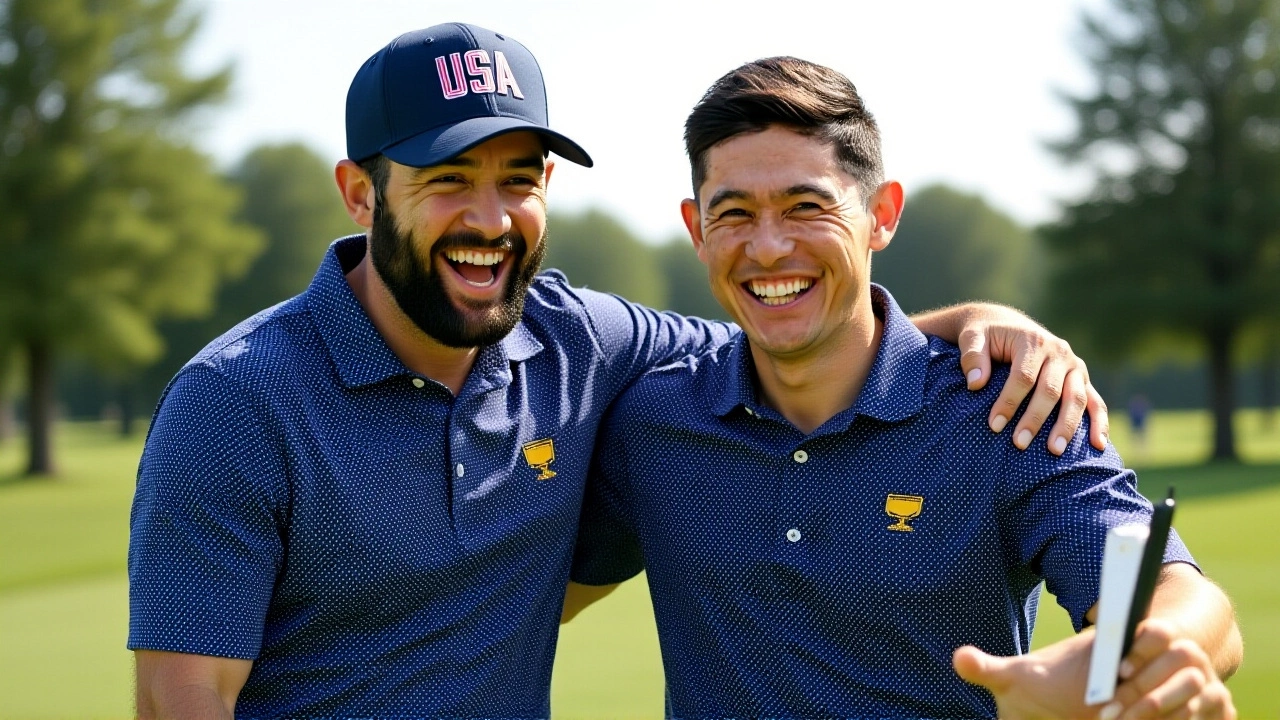
Team USA clinched the 2024 Presidents Cup at Royal Montreal Golf Club, beating the International side 18.5‑11.5 for a record tenth straight win, with captain Jim Furyk praising his squad.
When exploring Royal Montreal Golf Club, a historic private club in Montreal, Canada, famed for its championship‑level course and iconic tournament history. Also known as RMG, it serves as a benchmark for course quality and member experience. The club’s legacy isn’t just about pretty fairways; it’s a living laboratory for how athletes fine‑tune their game.
One of the core reasons the club stands out is its golf course, a meticulously routed 18‑hole layout that challenges distance, accuracy and strategy. The design demands precise shot‑making, which forces players to work on swing mechanics, mental focus, and physical conditioning. In practice, that same focus translates to better performance on the bike, the track or the football field – the same principles of balance, timing and power apply everywhere.
Royal Montreal Golf Club encompasses elite competition, which requires athletes to push limits on every swing. That same push‑factor shows up in the sports performance, the science of improving speed, endurance and technique across any athletic discipline. For example, the high‑octane drama of the 2025 Singapore Grand Prix, where George Russell claimed pole and victory, illustrates how precision engineering and mental grit drive results – lessons any golfer can borrow for club‑face control. Likewise, the intense opening of the 2025 WNBA playoffs demonstrates the importance of adaptable game plans, something that mirrors a golfer’s need to read changing wind and lie conditions.
The clubhouse – another pillar of the club – is more than a social space. It’s a clubhouse, a hub for members to review stats, recover, and discuss strategy with coaches and peers. Inside those walls, members swap notes on bike cadence after reading about professional cyclists’ downhill speeds, or compare footwork drills inspired by the Ravens vs Bills showdown. That cross‑pollination of ideas is what turns a good golfer into a well‑rounded athlete.
On the performance side, data matters. Tracking cadence, heart‑rate zones, and power output – metrics often highlighted in articles about professional cycling and even NFL quarterbacks – gives golfers concrete feedback on how their bodies respond under pressure. When you know you can sustain a 200‑watt output for 30 minutes, you can also gauge how long you’ll hold a steady swing tempo on a demanding par‑5.
Training at Royal Montreal Golf Club often blends traditional golf drills with cross‑disciplinary workouts. Mountain biking sessions, for instance, improve core stability and leg strength, echoing the insights from the “Is mountain biking harder than road cycling?” piece. Meanwhile, strength‑training routines that mirror the explosive power needed for a football quarterback’s throw, as discussed in the Ravens vs Bills preview, help generate faster clubhead speed.
Members also benefit from the club’s focus on mindset. Articles about doping in professional cycling remind us that ethical performance is a long‑term game, not a quick fix. By fostering a culture of clean competition and mental resilience, the club aligns with the broader sports community’s push for fairness and excellence.
Below you’ll find a curated list of articles that dive deeper into these themes – from high‑speed bike descents to the tactical nuances of a football showdown, and even the psychological edge that separates champions. Whether you’re here for golf tips, cross‑training ideas, or a peek at the latest sports headlines, the collection offers practical takeaways you can apply on the fairways and beyond.

Team USA clinched the 2024 Presidents Cup at Royal Montreal Golf Club, beating the International side 18.5‑11.5 for a record tenth straight win, with captain Jim Furyk praising his squad.